So, do you want to be a competition shotgun shooter, but can’t devote your entire life to the process? We talked to Syren pro-shooter Ashley Butcher , who travels the country, competes at the highest levels in the shotgun sports, yet manages a professional career and family life. We asked Ashley to give us tips for balancing professional careers and competition shooting schedules.
Most people shoot in their youth (SCTP, 4H, AIM, ACUI, etc.) through high school and college, then graduate and their lives become consumed by their professional careers and having families of their own. At that life stage, shooting falls lower in the priorities or out of favor completely. Later in life, kids grow up and move on, or retirement comes, and this free time opens back up the joys of shooting again. Very few, like Ashley, have been able to maintain shooting competitively as part of their journeys after college.
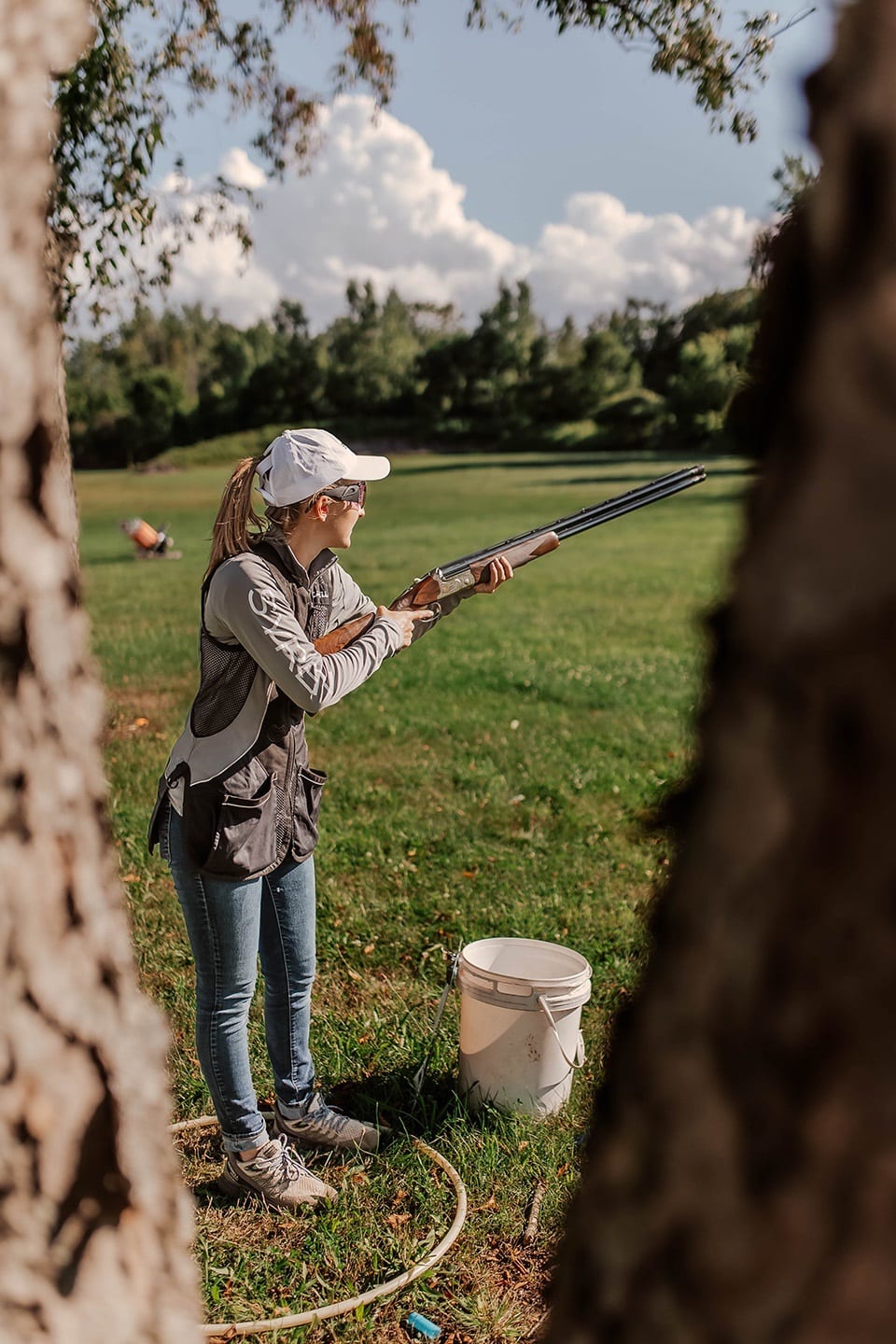
Ashley recently competed at the World Sporting Clays Championship, against some of the top shooters in the world. She took home the gold, claiming 1st Place Lady in 20-gauge FITASC (5th place AA class with a 46/50).
We asked Ashley these questions:
Syren Savvy: In the world of competitive shotgun sports, many shooters find their passion for this early in their youth. Then it tapers off as they graduate college or enter their career stage of life with little time left for hobbies. How have you been able to maintain balance between a professional career and a rigorous competition shooting schedule and still compete at such a high level?
Ashley: For me, it was a making a choice to prioritize shooting competitively and also asking my family and friends for their support. I think the family/friend support is really important because there have been many times where I have asked Dave (boyfriend) or my parents to use vacation days to attend tournaments with me, or there have been times where I have had to miss going to visit friends because I was out of town for a tournament or because I didn’t have enough vacation time to plan another trip.
Prior to Covid 19, I was attending the entire championship tour in addition to other tournaments. Post Covid, I have cut back and I try to pick a smaller schedule for the year. This makes it more manageable and because I’m attending less tournaments, it allows Dave and me to build a vacation around one or some of the tournaments. In 2023, we went to the Western Regional in Colorado, but we turned it into a vacation and visited friends in Denver, saw Rocky Mountain National Park and the Red Rock Amphitheater.
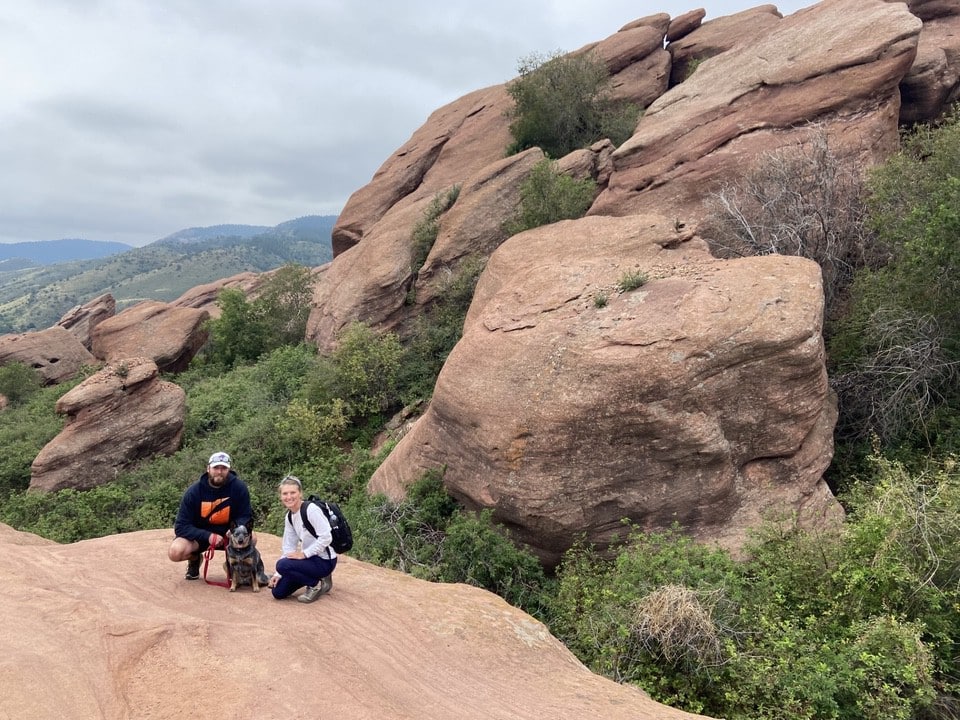
Syren Savvy: Where do you see yourself 5, 10, 15 years into the future? And do you still think shooting sports will be part of it?
Ashley: I love that you can participate in shooting sports your entire life. There are guys in their 80s and 90s that still come to the club every weekend to shoot. I hope I’m still shooting when I’m their age!
As far as the next 5-15 years, I envision cutting back on competing so that I can continue to build my career, get married and eventually have a family. But I do plan to introduce the sport to my children and I hope that it’s something we can do together as a family. I grew up shooting with my dad and someday it would be fun to have three generations out there shooting clays together.
In addition, Clays for Heroes is officially a 501c3 as of this year! So my goal is to take some time to build that organization.
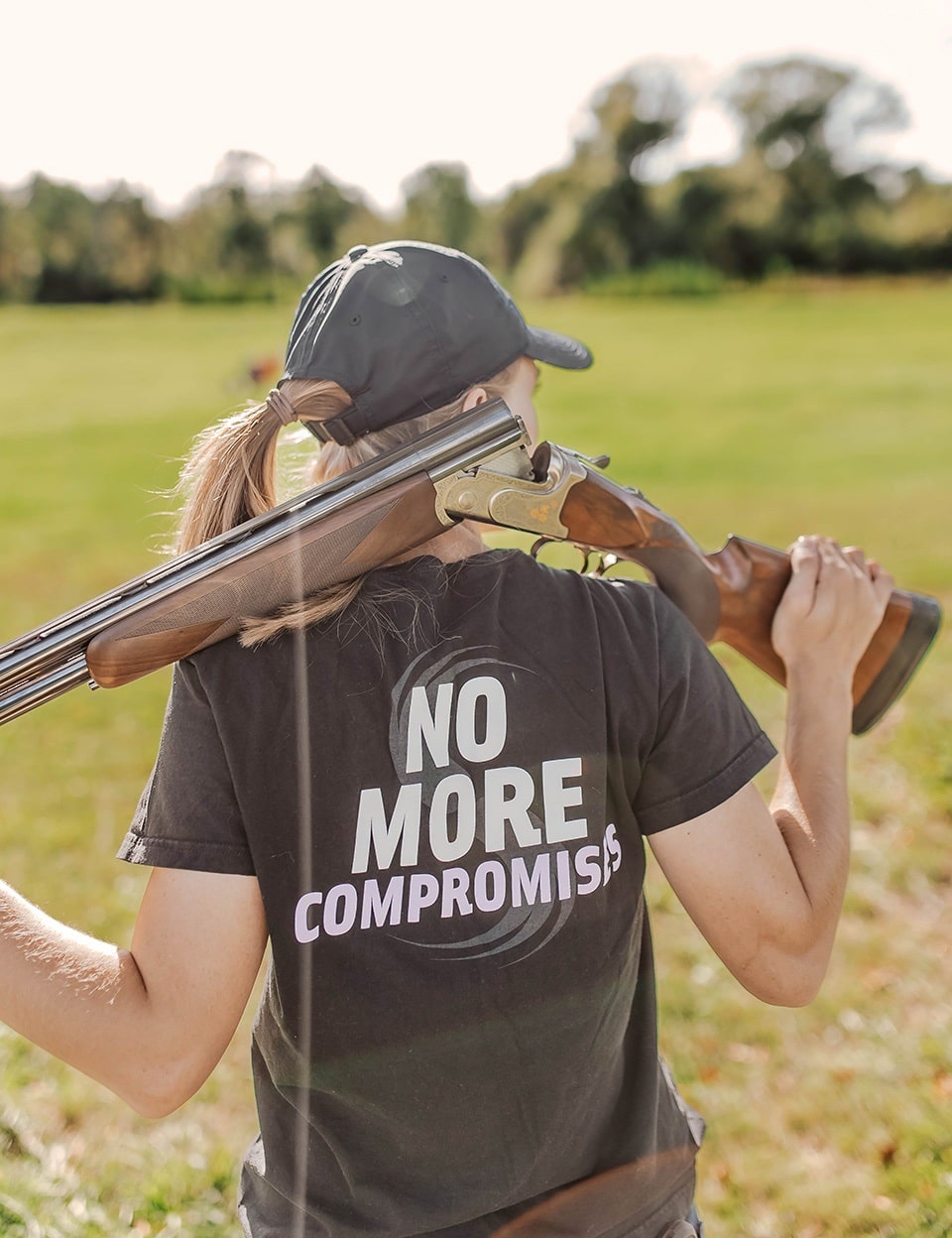
Syren Savvy: What’s something that motivates you and keeps you inspired to compete?
Ashley:
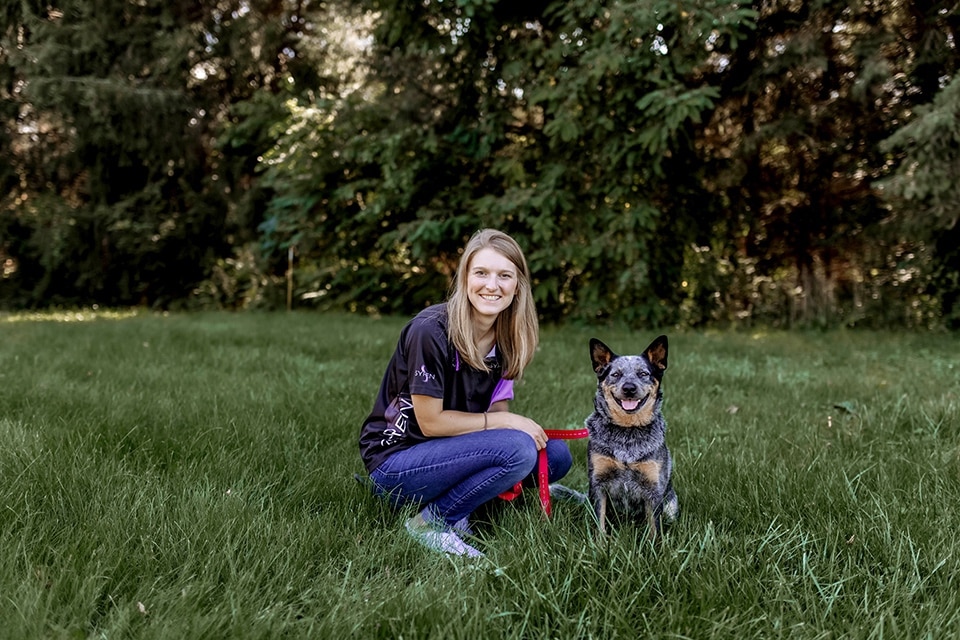
Syren Savvy: Let’s talk about travel. In order to compete in registered tournaments around the US, and in some instances, around the world, travel is a must. How does this factor into your career and is flexibility a factor?
Ashley: Before Covid, I was attending more tournaments and I would fly in on a Friday, shoot, fly home late Sunday and so I was able to fit in more tournaments using fewer vacation days. Now, the airline experience has changed with fewer flights to choose from and more delays so I have built in more travel time to allow for this and we choose to drive a lot more.
Thankfully, my supervisor is very supportive and as long as I have vacation time and my work is done, she allows me to take the time when I need it. I know not all careers have that flexibility because certain times of year are busy and employees can’t take off.
Syren Savvy: Do you have a good story about how your work life and shooting life mixed?
Ashley: I remember years ago attending a large shoot at Northbrook. I had just started my job and so I had very little vacation time so I planned to fly home late Sunday night out of Chicago. After several delays, the airline ended up canceling my flight around 1 a.m. The earliest they could get me home was 10 a.m. the next morning. I called my boss early the next morning to explain the situation and that I would be coming in late. I ended up going straight from the airport to work. I was exhausted and could not wait to crawl into bed that night.
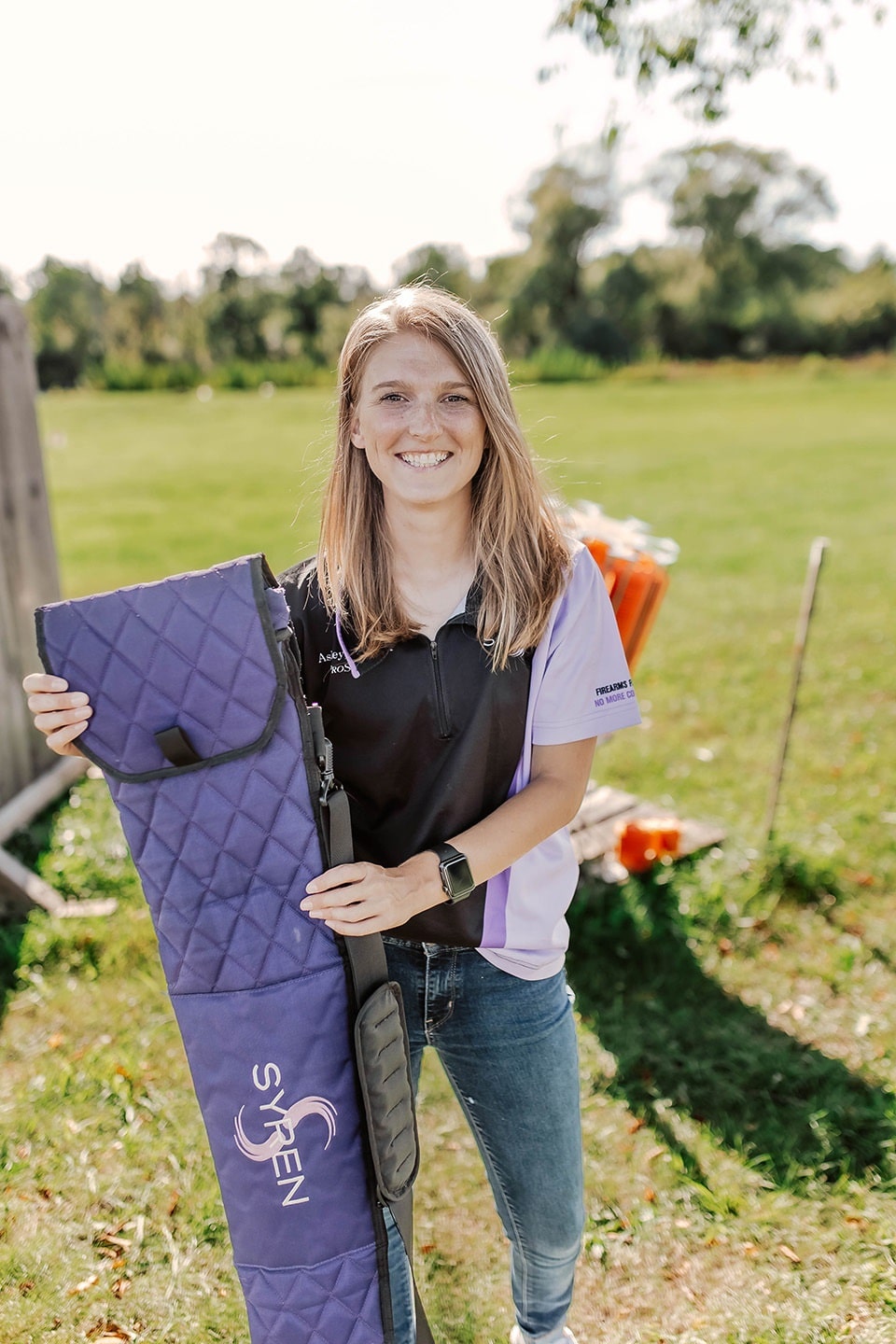
Syren Savvy: Can you give us some tips on time management?
Ashley: At the beginning of every season, I set goals for myself and part of that process is selecting what tournaments I want to attend and what level of commitment I need to make if I want to be successful at those tournaments. Once this has been decided, the two most important steps for me are:
Step 1: Identifying a Realistic Practice Schedule
It is important that I set a practice schedule that fits in my schedule and that I can commit to. If I set an unrealistic training schdule, it is likely that I won’t be able to commit to it, and then I feel burned out or that I am not giving other areas of my life enough attention.
I have a full time job so between 8 and 5, I am an accountant and I must focus my energy on that. Outside of work, I am a girfirend, a daughter, a dog mom, the President of Clays for Heroes, Inc., a volunteer at our gun club, and like all other adults…a chef and a housekeeper. 🙂 Because of my various responsibilities, I have found that I can commit to:
Step 2: Being Present
Once I have identified the days/times I am committed to training – I force myself to be present! If my mind is thinking about chores that need to be done or that my dog is home waiting for me, I am not going to get the most out of my practice. 100% of my energy and focus should be on practice. And then I apply this to other areas of my life. So on the nights I commit to taking Kimber for a walk, I focus on enjoying that and not letting myself think, “I should be practicing.”
Learn more about Syren shotguns and its fabulous team here.
Publisher/Editor Barbara Baird is a freelance writer in hunting, shooting and outdoor markets. Her bylines are found at several top hunting and shooting publications. She also is a travel writer, and you can follow her at https://www.ozarkian.com. View all posts by Barbara Baird